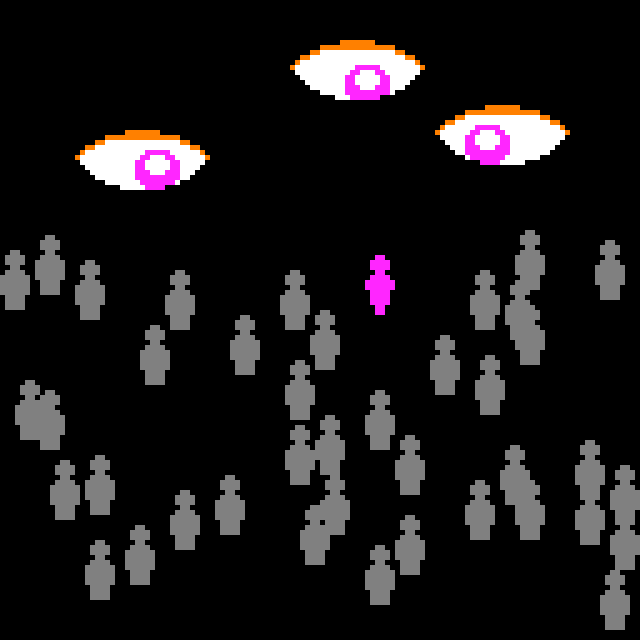
Gamifying simple skills is one avenue of putting games in the classroom (Mavis Beacon Teaches Typing), but games offer more than a fun means to teach simple skills. Dys4ia is a game that deals with gender identity and the difficulties that someone with gender dysphoria faces in a distinctly gendered world. Rather than teaching something superficial like arithmetic, it sheds light on the social and medical barriers that this person may confront when trying to change their situation. Merrit Kopas uses Dys4ia in the classroom to get these messages across:
What I like about dys4ia over a film or textual narrative in this case is that it drives home the systematic nature of gender regulation. Too often, students come away from (often tragic) films or written accounts about gender and sexual minorities feeling upset about the particular circumstances of the unfortunate individuals’ lives – or worse, defensive and refusing to acknowledge their complicity in systems of power. What they miss is that these accounts are often not atypical – they’re examples of the results produced by oppressive systems, not reducible to the deeds of one or a few “bad people.” The point of these kinds of examples, for me, is not primarily to promote “awareness” or empathy – though I do want my students to become more empathetic people – but to get across the fact that people’s lives are structured by power.
The ability to tell a compelling story about disenfranchised groups benefits from mechanical barriers in the game. Different mechanics in other games can be used to deepen the understanding of an array of social issues.
I want to go further than merely pushing for games to be allowed into classrooms. Instead, imagine a space that taught game design alongside critical social theory – antiracist, feminist, queer, and so forth. Christine Love alongside Micha Cardenas, Molleindustria paired with Mattilda Bernstein Sycamore, Porpentine next to Jasbir Puar. The purpose wouldn’t be to make games to “save the world”, but to recognize the power of the medium to tell stories about our lives, and to help participants develop both an analysis of power and marginalization in society and the skill and confidence to communicate those analyses through games.
Not only do games benefit from narrative, but their mechanics can convey deeper complexities, as Kopas points out. Game design has been slowly creeping into this realm, and if Kopas’s wish comes true, games like Dys4ia may be used to convey gender issues as readily as Middlesex.




